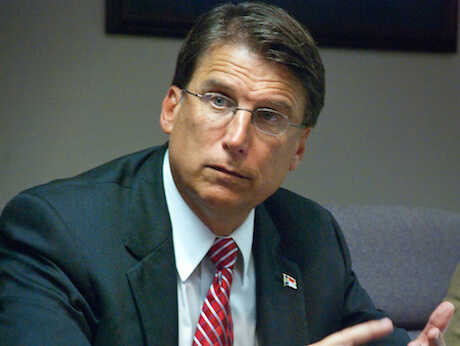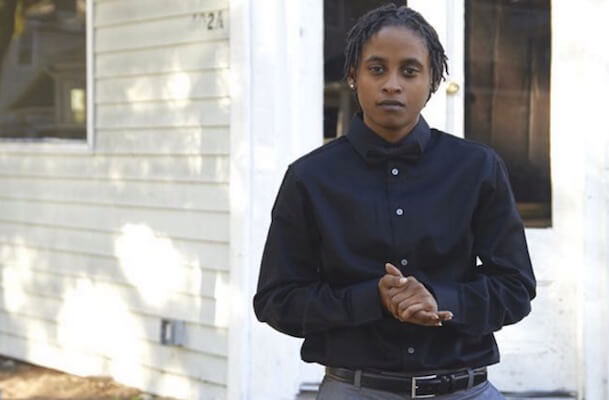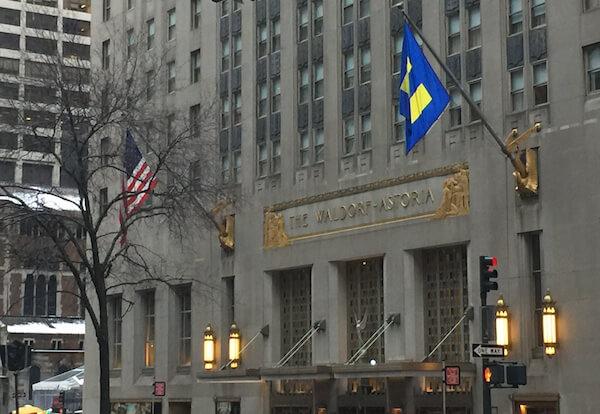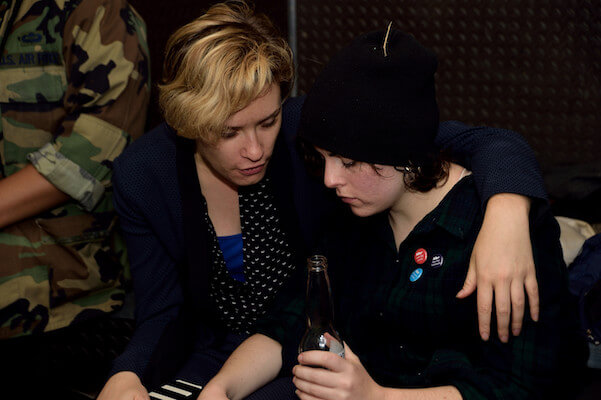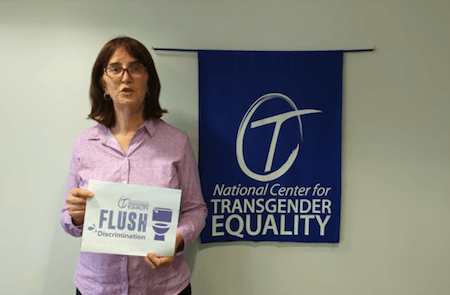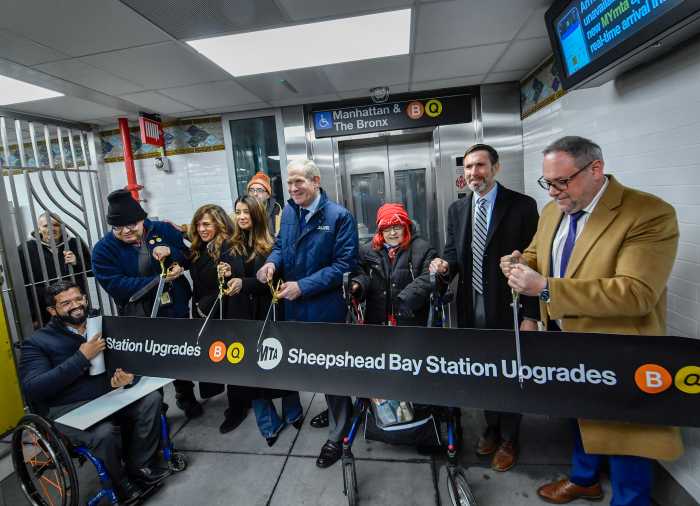BY ARTHUR S. LEONARD | Within days of North Carolina GOP Governor Pat McCrory signing into law H.B. 2, an “emergency measure” passed with the unanimous support of Republicans in the state legislature to restrict public restroom access for transgender people and preempt localities from legislating on LGBT rights, the American Civil Liberties Union’s LGBT Rights Project and the group’s North Carolina affiliate in collaboration with the Atlanta office of Lambda Legal and Equality North Carolina filed a lawsuit attacking the constitutionality of the measure.
Filed March 28 in the US District Court for the Middle District of North Carolina, the suit was assigned to Judge Thomas D. Schroeder.
North Carolina’s attorney general, Roy Cooper III, named as a defendant in the suit in his official capacity, soon announced that he agreed with the plaintiffs that H.B. 2 was unconstitutional and so his office would not defend it. (Cooper appears headed for headed for victory in the Democratic primary contest to oppose McCrory’s reelection in November.)
Advocates already in federal court; Democratic state attorney general declines to defend new measure
The proximate cause for the rush to enact H.B. 2 was the pending implementation of a new ordinance in Charlotte expanding the city’s nondiscrimination provisions to include protections based on sexual orientation and gender identity. Though other counties and municipalities in North Carolina already offered comparable protections, the debate in Charlotte spawned a frenzied outcry about men using women’s bathrooms, which led the legislature’s Republican leaders to call a special session to beat the Charlotte ordinance’s April 1 start date. McCrory, a former Charlotte mayor, acquiesced in the folly, and quickly signed the measure after its passage.
The law, as enacted, went far beyond concern that the Charlotte measure somehow afforded “deviants” some kind of special rights. In addition to rolling back the gender identity protections, it affirmatively enacted a requirement that public schools and other government facilities statewide restrict access to any “multiple occupancy bathroom or changing facility” to one sex or the other as defined by the user’s birth certificate. Since proof of sex reassignment surgery is required to receive a changed birth certificate, this onerous requirement would deny many transgender residents of the state access to public bathroom facilities.
And the legislature did not stop there. The new law also largely bars local ordinances that provide employment and public accommodations nondiscrimination protections, a move that had the likely unintended consequence of eliminating some local civil rights protections afforded to military veterans. H.B. 2 also rejects any private right of court action to enforce what statewide nondiscrimination protections exist, requiring instead that all complaints go before the State Human Rights Commission.
And, in what quickly made H.B. 2 into something of an omnibus grab bag, the measure also tacked on wholly unrelated prohibitions on local governments legislating on public contracting, child labor, and the minimum wage.
The lawsuit challenging H.B. 2 was brought in the name of two state university employees, Joaquin Carcano, a transgender man at the University of North Carolina at Chapel Hill, and Angela Gilmore, a lesbian at Northern Carolina Central University Law School, and a student, Payton Grey McGarry, a trans man at UNC Greensboro.
The complaint raises both constitutional and statutory claims. H.B. 2, the suit alleges, violates the 14th Amendment’s Due Process and Equal Protection Clauses by imposing harms on LGBT residents of the state without sufficient justification. The complaint asserts that this type of discrimination should be subjected to a heightened level of judicial scrutiny, a point not yet expressly embraced by the Supreme Court but starting to make its way in the lower federal courts.
The Due Process Clause claim includes a privacy claim, arguing that the bathroom restrictions will require transgender people to “out” themselves, exposing them to danger, and, in light of the state’s demanding criteria for issuing new birth certificates, effectively dictating surgical procedures to make them eligible to access public facilities appropriate for their gender.
The complaint also asserts violations of Title IX of the federal Education Act Amendments, which forbid sex discrimination by educational institutions that get federal money. This argument relies on recent decisions by the US Department of Education that educational institutions must allow transgender people to access restroom and locker room facilities consistent with their gender identity.
The complaint also attacks the preemption of local laws protecting LGBT rights, in reliance on the Supreme Court’s 1996 decision in Romer v. Evans, which struck down a Colorado constitutional amendment that prohibited the state or its political subdivisions from outlawing anti-gay discrimination. Unlike the Colorado amendment, H.B. 2 does not single out LGBT people for exclusion from protection on its face, but rather by prohibiting, for the most part, local governments from extending any nondiscrimination protections while the state human rights law provides no ban on bias based on sexual orientation or gender identity. Romer, however, would seem to apply, given the stated rationale for the legislature’s hasty action.
Since Title VII of the Civil Rights Act of 1964, which bans sex discrimination in employment, applies to state and local government workplaces, H.B. 2’s restroom provisions are likely in violation, given an EEOC precedent on this point. Title VII claims must be filed initially with the EEOC or designated state civil rights agencies — subject to an “exhaustion of administrative remedies requirement” — before they can be brought in federal court, so no Title VII claim was asserted in this challenge to H.B. 2.
However, it is possible that transgender state and local government employees will file such complaints, generating additional litigation as the ACLU-Lambda case works its way through the federal courts. The EEOC is busy litigating, directly and through amicus briefs in private litigation, to establish its position on the interpretation of “sex” under Title VII in non-federal employment cases in the courts, and a private “bathroom” case under Title IX is pending before the Fourth Circuit Court of Appeals, where a ruling is imminent. Such a ruling would be direct binding precedent on the district court in the case challenging H.B. 2.
The legal team representing the plaintiffs includes Christopher A. Brook for the North Carolina Legal Foundation of the ACLU, Elizabeth O. Gill and Chase B. Strangio of the ACLU’s national LGBT Rights Project, and Tara L. Borelli, Peter C. Renn, and Kyle A. Palazzolo of Lambda Legal’s Atlanta office.

